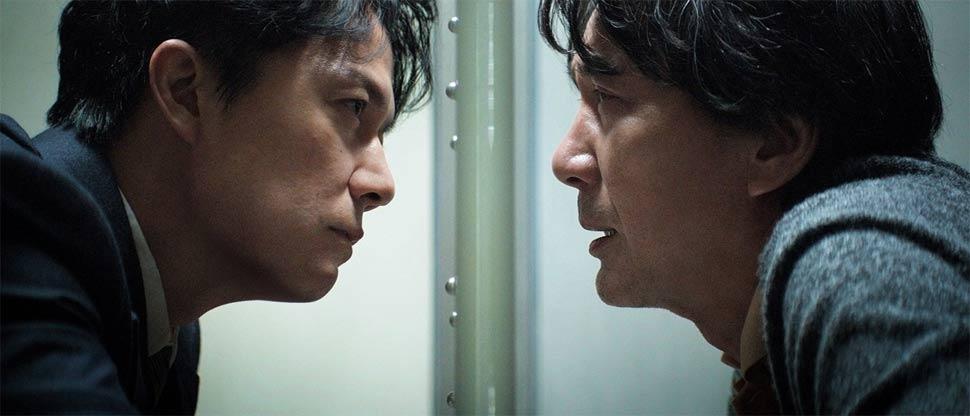
The central character is the suave and convincing lawyer Shigemori (Fukuyama Masaharu/Like Father, Like Son) who is called to investigate the case of a man who has spent three decades in prison for a double murder and has subsequently confessed to killing his factory-owning boss and burning his body. We witness the murder in the opening scene, so clearly Misumi (Yakusho Koji) must be guilty; strangely, it is Shigemori’s father who handed him a life sentence, instead of the death penalty, but times have changed.
The problem is that Misumi keeps changing his story, making things difficult for
Shigemori, the son of a retired judge, who is forced to keep writing and re-writing his script in order to get the most plausible defence for the murderer. To make matters worse, his own personal life is fraught with problems: estranged from his daughter, who is caught for shop-lifting, he is also separated from his wife. As he gets to know Misumi over their constant meetings, it soon emerges that their behaviour is very similar, they appear to be one in the same person, on different sides of the law.
This is a subtle but thematically rich crime thriller, brilliant in concept but less so in execution, despite Takimoto Makiya’s stunning camerawork, and Ludovico Einaudi’s moody score. The fault, at least for non-Japanese speakimg audiences, is its dialogue-led narrative which keeps us glued to the subtitles while scanning up and down the screen in case we miss vital clues, making it heavy-going, despite its universal themes rippling out to provide endless food for thought. MT
NOW ON GENERAL RELEASE | VENICE FILM FESTIVAL 2017